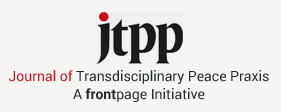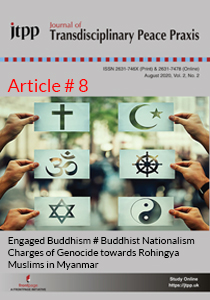Description
Engaged Buddhism # Buddhist Nationalism
Charges of Genocide towards Rohingya Muslims in Myanmar
Daniel Rhodes (Director, Undergraduate Social Work Programme at the University of North Carolina Greensboro, USA)
In 1991, under the weight of a brutal military dictatorship in Myanmar, Aung San Suu Kyi was awarded the Nobel Peace Prize for her tireless work utilising non-violence methods defined in the West as Engaged Buddhism.
Eighteen years later, in December 2019, Aung San Suu Kyi appeared before the United Nations International Court of Justice answering for charges of genocide of the Rohingya Muslim population by the country’s Buddhist majority. How did this once revered peace activist, considered the paragon of Engaged Buddhism and non-violent action, go from Nobel Peace Prize winner to defending genocide in her country?
And how does the religious tradition of Buddhism for the Burmese, with the tenets of Mettā (loving-kindness), Ahimsā (non-violence), and Karunā (compassion), utilised in the struggle for freedom and social justice for the people of Myanmar become contorted to promote nationalism and justify the engaging of genocide towards another group of people?
While Aung San Suu Kyi is questioned on her role of complacency with ethnic cleansing, Ashin Wirathu (also known as the ‘Buddhist bin Laden’), the leader of the Buddhist movement against the Rohingya Muslim is being sought out by the Myanmar government for his inflammatory rhetoric denigrating Muslims and encouraging Buddhists to attack the Rohingya population.
In this paper, the author delves into the complexities of a how nationalism and Buddhism would fuse into a deadly combination in Myanmar, leading to a religious and ethnic clash. The article also explores as to how the values and ethics of Engaged Buddhism are not consistent with a nationalistic movement that exploits Buddhist teachings to justify genocidal behaviour.





